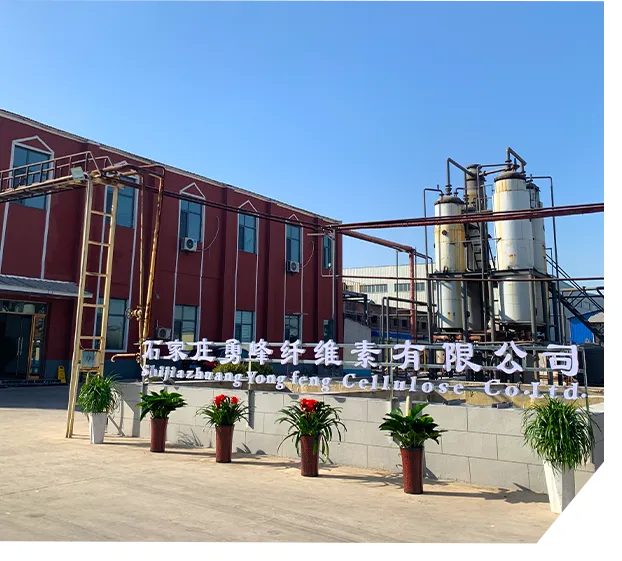Adhesive Methyl Cellulose Versatile Applications in Modern Industries
Methyl cellulose, a chemically modified cellulose derivative, has become a crucial component in numerous industries due to its unique adhesive properties and functional characteristics. As a non-toxic, biodegradable substance derived from plant cellulose, methyl cellulose is widely used in construction, food processing, pharmaceuticals, and cosmetics. This article explores the properties, applications, and advantages of adhesive methyl cellulose in various sectors.
Properties of Methyl Cellulose
Methyl cellulose is a white, odorless powder that is soluble in cold water but forms a gel upon heating. This temperature-sensitive gelling property is one of the reasons methyl cellulose is an effective adhesive. Its chemical structure allows it to create strong hydrogen bonds with water molecules and other surfaces, resulting in excellent adhesion and viscosity regulation in various applications. Additionally, methyl cellulose is non-ionic, which means it does not easily interact with other ionic compounds, making it suitable for use in diverse formulations.
Applications in Construction
In the construction industry, methyl cellulose is often utilized as an additive in cement-based formulations, including tile adhesives, grouts, and joint compounds. The addition of methyl cellulose enhances the workability and adhesion of these materials, allowing for better spreadability and ease of application. Furthermore, its ability to retain moisture improves the curing process of cement products, ensuring stronger bonds and longevity.
Tile adhesives containing methyl cellulose are particularly advantageous as they can accommodate slight movements in the substrate without compromising the integrity of the bond. This is particularly important in areas subjected to thermal changes and moisture fluctuations, such as bathrooms and kitchens. Additionally, the ease of cleaning tools after using methyl cellulose-based adhesives makes them appealing to professionals in the construction sector.
Uses in Food Processing
In the food industry, methyl cellulose serves multiple purposes, including as a thickening agent, emulsifier, and stabilizer. Its adhesive properties enable it to enhance the texture and mouthfeel of various food products. For instance, in the production of ice cream, methyl cellulose helps to create a smooth and creamy texture while preventing ice crystal formation.
adhesive methyl cellulose

Moreover, due to its ability to form gels at high temperatures, methyl cellulose is often used in vegan and vegetarian meat alternatives. This gelling property mimics the texture of traditional meat, providing a satisfying experience for consumers. Its use in food applications is further supported by its classification as a safe food additive, approved by regulatory agencies such as the FDA.
Role in Pharmaceuticals
In pharmaceuticals, methyl cellulose plays a vital role as a binder and coating agent in tablet production. Its adhesive properties help to hold the ingredients together, ensuring that the tablets maintain their shape and function during storage and consumption. Additionally, methyl cellulose can control the release of active pharmaceutical ingredients, allowing for sustained release formulations that enhance therapeutic outcomes.
Its biocompatibility and non-toxic nature make methyl cellulose an attractive option for various drug delivery systems, including oral, transdermal, and ocular formulations. The adaptability of methyl cellulose in these applications highlights its importance in modern pharmaceutical development.
Contributions to Cosmetics
In the cosmetics industry, methyl cellulose is employed as a thickening and stabilizing agent in various formulations, such as lotions, creams, and shampoos. Its adhesive properties ensure that products maintain their texture and consistency while providing a pleasant sensory experience upon application. Additionally, methyl cellulose can enhance the efficacy of active ingredients by ensuring even distribution and prolonged skin adherence.
Conclusion
Adhesive methyl cellulose is a versatile compound with applications across various industries. From improving construction materials to enhancing food textures and ensuring effective drug delivery, its unique properties make it an invaluable resource. As industries continue to evolve and seek sustainable and efficient materials, the importance of methyl cellulose is likely to grow, solidifying its role as an essential adhesive in modern applications. With ongoing research and innovation, we can expect to discover even more uses for this remarkable compound in the future.
-
Rdp Powder: Key Considerations for Wholesalers in the Building Materials IndustryNewsJul.08,2025
-
Key Considerations for Wholesalers: Navigating the World of Hpmc - Based ProductsNewsJul.08,2025
-
Hpmc Detergent: Key Considerations for WholesalersNewsJul.08,2025
-
Key Considerations for Wholesalers: China Hpmc For Tile Adhesive, Coating Additives, Concrete Additives, and MoreNewsJul.08,2025
-
Crucial Considerations for Wholesalers: Navigating the World of Construction MaterialsNewsJul.08,2025
-
Key Considerations for Wholesalers Sourcing Additive For Cement, Additive For Concrete, Additive For Putty from Additive Manufacturer Shijiazhuang Gaocheng District Yongfeng Cellulose Co., Ltd.NewsJul.08,2025




